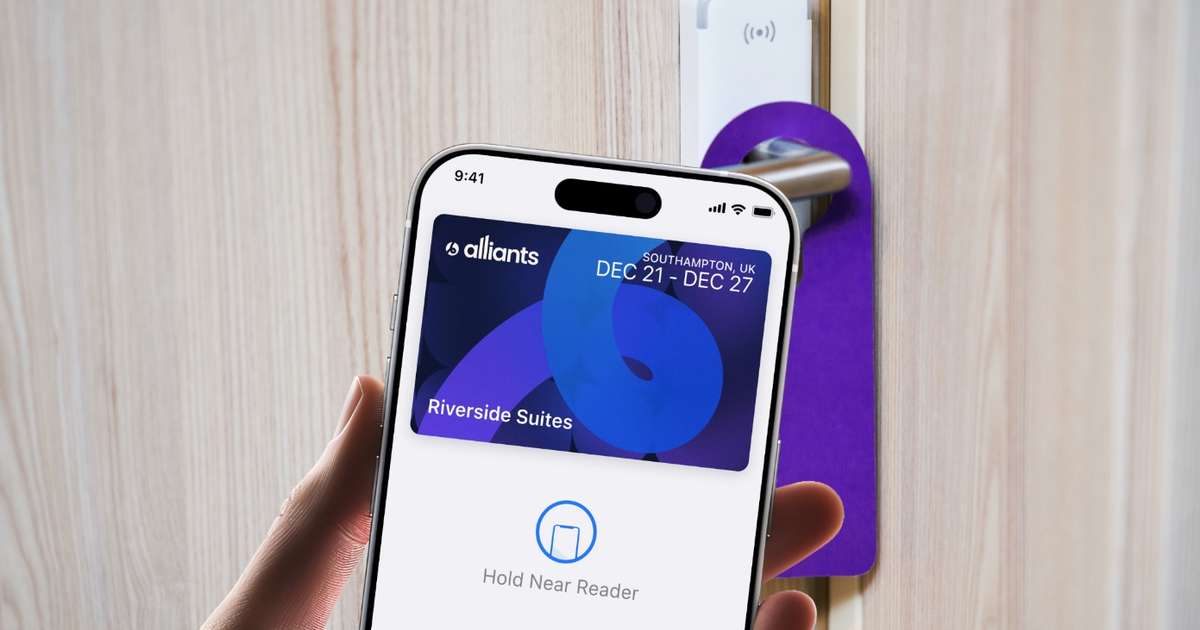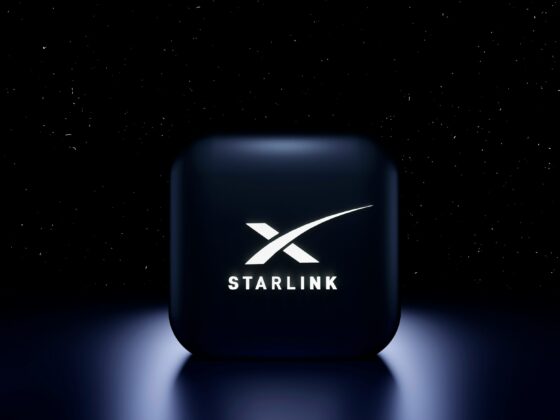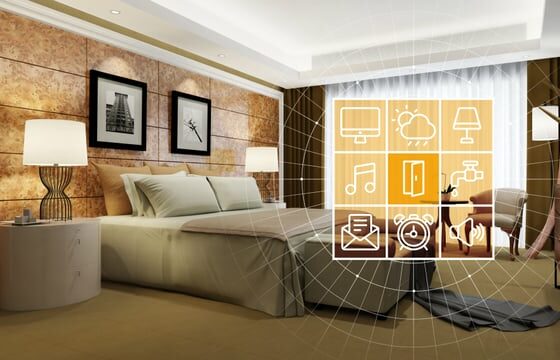
Is digital contactless technology a cost of doing business for hotels, or is it an opportunity to improve the overall hospitality experience and increase guest spend?Contactless experiences at hotels are often viewed as little more than a post-pandemic operational requirement or as a necessary convenience that guests demand in a hyper-digital world. This view leads many hoteliers and their asset owners to see these milestones in the guest journey as cost-saving centres, not as revenue management opportunities. This perception is not only outdated—it’s blocking both asset owners and hotel operators from taking advantage of untapped revenue potential with guests. The truth is far more powerful in the context of hotel management. While there are obvious cost savings, every step in the contactless guest journey presents a strategic opportunity to gain a higher net operating income, increase Net Promoter Scores (NPS), and drive significant increases in ancillary guest spend.
By optimising and aligning each milestone in this digital journey, hotel staff can free up precious time and attention, which can then be reinvested back into what truly elevates guest spend: exceptional service. This improvement also opens up opportunities, both digitally and in-person, to create those surprise-and-delight moments, targeted upsells, anticipatory service offerings, and more timely brand engagement. This kind of time savings and opportunity creation is critically important for staff to be able to repurpose while our hotel industry is still plagued by historically high turnover rates and labour costs. Every second truly does count in the hotel industry.
In this article, we’ll break down why each milestone in the contactless journey is far more than a functional upgrade, and we’ll back it up with data that proves why “contactless” shouldn’t be viewed as the baseline, but rather as the launchpad toward a more profitable guest experience.
Digital Check-in: Your First Impression of Hospitality Matters
Digital check-in is more than a tool to gain operational efficiencies in hotel management; it is a way to set the guest experience expectation from the outset. It’s a powerful first impression that sets the tone for the entire journey, integrating seamlessly with your property management system and other technologies that unify the overall customer experience.
Think about the last time you travelled. How excited were you about the check-in process? When guests arrive at a hotel after a long journey, the last thing they want is to wait or deal with more friction on top of whatever friction they went through to get to your hotel. Conversely, a smooth and thoughtfully implemented digital check-in not only removes this friction, it sends a powerful message: “We value your time as our hotel guest, and we don’t want to waste it”.
Digital check-ins also present a golden opportunity to start guest engagement early during an age where email marketing just doesn’t cut it anymore. You can tailor personalised greetings, share context-aware upsells like room upgrades, or ancillary service offerings in real-time, all before they even step through the lobby doors. Furthermore, having your digital check-in technology directly connected within your greater guest experience platform allows you to more effectively segment the right offerings to the right guests at the right time via unified guest profile data insights. When executed this way, digital check-ins shift the relationship with your hotel guests from transactional to transformational, improving overall guest service. The benefit also increases repeat business as guests trust in your ability to offer a seamless experience.
The data backs this up, showing how automation of the hotel management of a check-in process can streamline operations and improve guest satisfaction, ultimately enhancing profitability. At Amadeus, they found this year that 71% of business travellers are keen on seeing hotels adopt online or self-service check-in solutions to enhance the customer experience. According to Oracle Hospitality’s latest customer survey in 2023, 60% of travellers ranked mobile check-in as a top tech feature they expect from their hotel stay. They also found that properties offering digitally smooth check-in experiences report a 25% higher guest satisfaction score upon arrival alone.
Digital Key Provisioning: Turning Convenience into Revenue Solutions
Once seamless key provisioning is in place, the operational benefits for hotel owners are immediate and measurable. Queues become more infrequent, queues break down faster during peak check-in hours, and staff spend less time on admin work and more time finding the right opportunities to present ancillary offerings to guests. These convenience gains help set the tone for a seamless stay, but the real opportunity to enhance the guest experience begins once the guest has unlocked their room—literally and digitally.
By web-provisioning keys via wallet passes, you can seamlessly integrate with your property management system so you don’t need to force your guests to download an app in order to “skip the line” and get into their room. Allowing guests this flexibility to choose how they engage with your brand also sets the stage for brand interactions with guests to occur more naturally and in real-time.
This shift in thinking about hotel keys differently is something that leaders in the hotel and resort industry are already embracing to enhance the guest experience. As Shannon McCallum, VP of Hotel Operations at Resorts World Las Vegas, shared in a recent Alliants partnership announcement, “We’re not just focused on technology for convenience, but on how it enables us to better connect with our guests and elevate the experience at every touchpoint. Creating a truly unforgettable, top-tier, and seamless experience is our highest priority. Alliants is helping us to accomplish that mission with the latest integration of their technology in our resort.”
Securing Payment: Turning Customer Transactions into Confidence
According to a recent Amadeus Hospitality study, 32% of travellers have experienced billing issues that negatively impacted their stay, reducing their brand loyalty and highlighting the need for better technology to manage payments. While securing payments is conventionally considered admin work on behalf of the guest and staff, it’s a de facto trust fall they have with your brand.
When securing a guest’s payment for their stay happens in outdated systems, or in ways that sow uncertainty, you create points of potential failure that lose you money and guest confidence in your brand. For example, hotels hover between a win rate of 30-40% when disputing chargebacks. Hospitality is an intangible service, which makes it very difficult for any evidence to prove that the service was delivered within expectations, impacting the overall customer experience. So, the more secure and seamless you can be during payment capture, the more you mitigate the potential for something like a chargeback, thus streamlining operations.
Accomplished correctly, transparent and secure payment processes do more than protect revenue—they create an overall customer experience of confidence and trust. This trust is also what gives hotel guests the peace of mind when they open up their wallets to spend more at your hotel. If you were staying at a hotel as a guest and had a significant issue with the hotel’s payment system, how confident would you be to continue spending money while there?
ID Verification: Building Trust Through Seamless Compliance and Management
While ID verification is a necessary formality, how it’s handled says a lot about a hotel’s commitment to guest experience and their privacy. Relying on manual ID checks always creates bottlenecks, degrades the guest’s impression, and often raises data protection concerns, ultimately impacting guest service. Inspired by agencies like the TSA, which cut passenger verification times by up to 33% through digital identity tools, forward-thinking hotels are adopting similar solutions to streamline this critical process.
Moreover, emerging regulations are making this shift not just preferable but essential for effective management and enhanced guest experiences. As outlined in a PhocusWire report, governments around the world are pushing for structured, digitised collection of guest identity for compliance, safety, and public health reasons, forcing the hospitality industry to rethink the current conventional wisdom. By embracing digital ID capture, hotels aren’t just saving time—they’re building guest trust, ensuring regulatory compliance, and laying the groundwork for that trust to turn into higher confidence for behaviours like increased ancillary spend.
How Improving Each Guest Milestone Increases Hotel Net Operating Income & Net Promoter Score
If you’re a seasoned hospitality industry professional, you know that improving each guest milestone is a game-changer for boosting net operating income and NPS. When you embrace technology like kiosks, digital provisioning of keys, or contactless payments, it allows hotels to streamline operations and reduce wait times. But, do your hotel asset owners believe what you believe?
Guests love rapid check-in technology because less time waiting at the front desk means more time enjoying their stay and opening up their wallets to spend. So, how does a boring technology stack that supports contactless experiences enhance operational efficiency can lead to higher customer satisfaction that you can measure? Here are a few stats based to help your conversations about using contactless technology as a cost-saving centre.
Digital Hotel Check-in
- The average hotel can save, at a minimum, 6 minutes per digital check-in.
– The average hotel can save, at a minimum, 4 minutes per digital checkout
– Source: Data from over 127,000 digital check-ins and checkouts in the Alliants Experience Platform
Digital Keys
- A hotel key is about 5 grams of plastic, roughly the same as a plastic grocery shopping bag
– If 250 room facilitated just 20% of its check-ins on a sold-out day, it would save
Source: Data from over 21,000 key provisions in the Alliants Experience Platform showing over 100kg of plastic saved, and 600kg of carbon emission reductions.
Payments
When looking at data from over 158,000 contactless payments over one year within one global enterprise customer, their usage of Alliants Payments realised:
A savings of over $507,000 on suspected fraudulent payment attempts
A labour savings of 3 minutes per engagement to secure payment authorisations, accumulating to over 7,877 hours saved in that year
Now, here are a few stats that show how that cost savings centre mindset around contactless technology can be shifted based on numerous surveys from tens of thousands of travellers:
– According to an Oracle survey, 76% of hotel guests say a fully contactless hotel experience (digital check-in, mobile key, digital payments, etc.) would make them more likely to return.
– Deloitte found that 80% of travellers would pay more to stay at a hotel that offers seamless, tech-enabled experiences for contactless solutions like digital keys and check-in.
– At Amadeus, they found that 73% of hotel guests say they are more likely to return to — and spend more money at — hotels that allow them to pay, manage invoices, and check out via mobile or contactless options.
Every little improvement in the contactless guest journey adds up. Offering better check-in and check-out options gives your revenue management teams new opportunities to increase ancillary revenue—more convenience equals more purchases! And when guests feel those personalised services, they’ll be more likely to engage with your brand, creating a higher volume of purchasing opportunities.
This engagement can be automated during the guest experience as well, such as a room upgrade offer upon finishing digital check-in, further enhancing guest experience profitability. Plus, don’t forget the environmental impact; reducing carbon emissions is a big plus for today’s eco-conscious travellers. So, as the hospitality market evolves, remember that every step you take to reduce the friction of your contactless guest experience can really make a difference in your bottom line.
Contactless Isn’t the a Hospitality Experience Endgame, It’s the Starting Line for Technology Evolution
In the ever-evolving hospitality industry, the notion that contactless solutions represent the endgame is simply a myth. Instead, these milestones serve as the starting line for a technological evolution that can help hotels transform their operations and improve the guest experience, ultimately growing their net operating income. By implementing contactless management software, hotel chains can better streamline the check-in and check-out processes in ways that better leverage guest preferences for increased spend. This allows your teams to turn standard hotel room check-ins into memorable experiences that resonate with guests.
Every contactless milestone achieved is not just a convenience either; it’s a strategic point to enhance trust by improving customer engagement. Forward-thinking hospitality brands, from global hotel chains to boutique hotels, are harnessing the power of this technology to improve guest experience and enable staff to focus on what truly matters—creating engagements that elevate guest experiences.
About Alliants
Alliants has helped many of the world’s most respected brands deliver exceptional customer experiences. Founded in 2009, Alliants has built industry-changing technology solutions, including award winning mobile apps and chat applications that transform the digital guest experience garnering usage by millions of guests around the globe. In 2022, Alliants secured a minority stake investment from Zendesk, Inc. (NYSE: ZEN), the global customer experience software company headquartered in San Francisco. In 2023, Alliants was recognised as a UK Best Workplace in Tech™ , a certification solely based on employee feedback.








